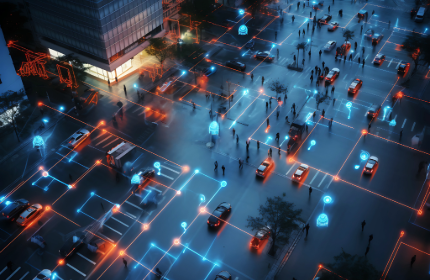AI Vision Marketplace
Introduction to AI Vision Marketplace
AI Vision Marketplace is a rapidly growing sector within the field of artificial intelligence (AI) that focuses on the development and deployment of computer vision technologies. Computer vision is the ability of a computer system to interpret and understand visual information from images or videos, similar to how humans perceive and interpret the world around them. The AI Vision Marketplace brings together various stakeholders, including technology providers, developers, and end-users, to create a thriving ecosystem for the advancement and adoption of AI vision technologies.
Benefits and Applications of AI Vision Marketplace
The AI Vision Marketplace offers numerous benefits and has a wide range of applications across various industries. One of the key advantages is the ability to automate and streamline processes that traditionally required human intervention. For example, in the retail industry, AI vision technologies can be used to automate inventory management by accurately tracking and counting products on shelves. This not only saves time and reduces errors but also enables retailers to optimize their inventory levels and improve customer satisfaction.
Another significant application of AI vision technologies is in the field of healthcare. AI-powered medical imaging systems can analyze medical images such as X-rays, CT scans, and MRIs to assist doctors in diagnosing diseases and conditions. This can lead to faster and more accurate diagnoses, ultimately improving patient outcomes. Additionally, AI vision can be used in monitoring patient vital signs, detecting anomalies, and alerting healthcare professionals in real-time, enhancing patient safety and care.
Key Players and Technologies in AI Vision Marketplace
Several key players are driving innovation and development in the AI Vision Marketplace. Companies like Google, Microsoft, and Amazon have made significant investments in computer vision research and development, resulting in the creation of powerful AI vision technologies. These technologies include deep learning algorithms, convolutional neural networks (CNNs), and generative adversarial networks (GANs), which enable computers to understand and interpret visual data with remarkable accuracy.
In addition to these tech giants, there are also numerous startups and smaller companies that specialize in AI vision technologies. These companies often focus on specific industries or applications, such as autonomous vehicles, surveillance systems, or industrial automation. For example, companies like Tesla and Waymo are leveraging AI vision technologies to develop self-driving cars, while companies like Hikvision and Dahua Technology are leading the way in AI-powered surveillance systems.
Future Trends and Challenges in AI Vision Marketplace
The future of the AI Vision Marketplace looks promising, with several emerging trends on the horizon. One such trend is the integration of AI vision technologies with other AI disciplines, such as natural language processing and robotics. This convergence of technologies will enable more advanced and interactive systems that can understand and respond to both visual and verbal cues, opening up new possibilities in areas like virtual assistants, smart homes, and augmented reality.
However, along with these opportunities, there are also challenges that need to be addressed. One of the main challenges is ensuring the ethical and responsible use of AI vision technologies. Issues such as privacy, bias, and accountability need to be carefully considered and regulated to prevent misuse or harm. Additionally, there is a need for ongoing research and development to improve the robustness and reliability of AI vision systems, as well as to address potential security vulnerabilities.
In conclusion, the AI Vision Marketplace is a dynamic and rapidly evolving sector that holds immense potential for transforming various industries. The benefits of AI vision technologies, such as automation, improved accuracy, and enhanced decision-making, are already being realized in sectors like retail and healthcare. Key players, including tech giants and startups, are driving innovation in this field, leveraging advanced technologies like deep learning and CNNs. Looking ahead, the integration of AI vision with other AI disciplines and addressing ethical and technical challenges will shape the future of this marketplace. As AI vision technologies continue to advance, we can expect to see even more exciting applications and opportunities emerge.






